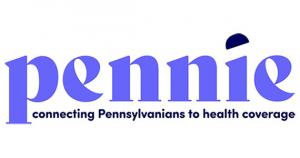Pennsylvania: Pennie urgest Congress to act now to prevent significant healthcare coverage cost incresaes for Pennsylvanians

Congress Urged to Act Now to Prevent Increase in Health Coverage Costs For Pennsylvanians
The enhanced premium tax credits from the American Rescue Plan and the Inflation Reduction Act have placed high-quality health coverage within reach for hundreds of thousands of Pennsylvanians. Unless Congress extends these savings, many Pennsylvanians will lose the coverage that protects their health and financial security.
Pennsylvania – September 11, 2024 – Yesterday, Devon Trolley, Executive Director of Pennie – PA’s official health insurance marketplace – and Chairman of the Pennie Board, Michael Humphreys, issued a letter to Pennsylvania’s representatives in Congress strongly urging them to act now to extend the enhanced premium tax credits that dramatically reduce the cost of health coverage through Pennie for hundreds of thousands of Pennsylvanians.
The enhanced premium tax credits were first enacted by the American Rescue Plan in 2021, were extended by the Inflation Reduction Act in 2022, and are set to expire at the end of 2025. Congressional action is needed by the end of 2024 to ensure market stability in 2026.
The enhanced premium tax credits reflect the most significant federal action to lower costs and expand access to health care since the passage of the Affordable Care Act. As a result, nine out of 10 Pennie customers are receiving tax credits, averaging $500 a month per person. These enhanced premium tax credits provide around $500 million annually to help Pennsylvanians afford their health coverage through Pennie.
With the enhanced premium tax credits, Pennie enrollment has hit record levels with nearly 435,000 individuals enrolled – an increase of 29 percent since 2021. This increased affordability has become the norm for Pennie’s current enrollees, two-thirds of which have only experienced the significantly lower premiums because of the enhanced premium tax credits. Without the additional savings, families would see premium increases of $4,000 per year for a family of four, with the largest increases affecting older and rural Pennsylvanians.
“Maintaining affordability of health insurance is one of the most important policies to ensure Pennsylvanians have protection against unexpected medical costs that can devastate household savings and financial security. Without the enhanced premium tax credits, many Pennsylvanians may lose their health coverage, erasing years of progress towards increasing access to critical medical care to prevent and treat illness and injury,” noted Trolley. “Our federal Pennsylvania officials in the House and the Senate can, through immediate action, allow Pennsylvanians to maintain the health and peace of mind afforded by high quality health coverage.”
By The Numbers
Here are the potential impacts to Pennie customers:
Individuals who are not yet eligible for Medicare:
- Older Pennsylvanians who are not yet eligible for Medicare will see their premiums rise the most with the loss of the enhanced tax credits.
- For example, a 60-year-old couple in York County with a household income of $82,782 would see a monthly premium increase from $586/month ($7,032/year) today to $2,827/month ($33,924/year) without the enhanced tax credits.
Individuals with lower incomes
- Many lower income families, who are ineligible for Medicaid, rely heavily on the additional tax credits to afford health coverage, or to buy a plan with greater benefits to better meet their health care needs.
- Over 93,000 current Pennie customers earning between $21,870-$29,160 per year will see a 115% increase in premiums without the enhanced premium tax credits.
Individuals in rural communities
- While all counties in Pennsylvania would be harmed by the expiration of the enhanced tax credits, Pennsylvania’s rural counties would be disproportionately impacted.
The enhanced premium tax credits position Pennie as a crucial component of continuous coverage in PA, from easing the transition from Medicaid into private marketplace coverage to providing access for pre-Medicare Pennsylvanians during a critical time in their health.
“We urge Congress to pass the enhanced premium tax credits as they offer a lifeline to millions of families struggling to make ends meet,” said Chairman Humphreys. “Congress has the opportunity to lift up the most vulnerable in our communities by ensuring Pennsylvanians have access to the healthcare they deserve, without the fear of struggling to cover its cost.”
If Congress does not extend the enhanced premium tax credits, Pennie and the Pennsylvania Insurance Department anticipate many Pennsylvanians would no longer be able to afford coverage and the coverage gains seen since 2021 would be reversed. Should these tax credits be made permanent, Pennie can continue to build on the progress made in providing a record number of Pennsylvanians with the peace of mind and economic security that comes from having health coverage.



